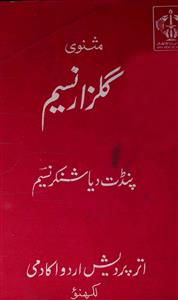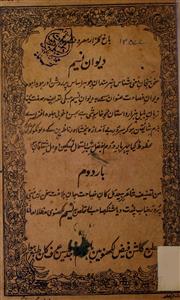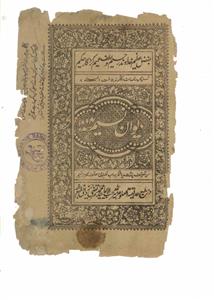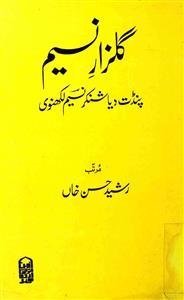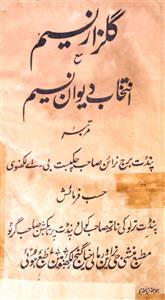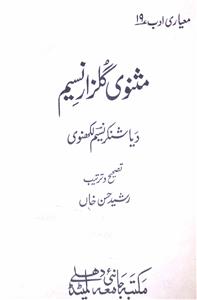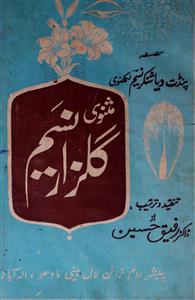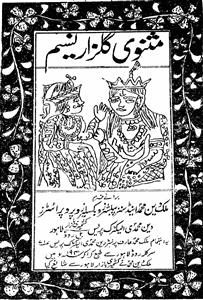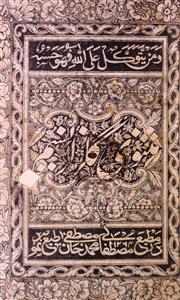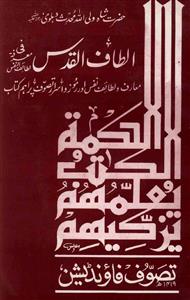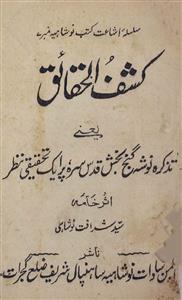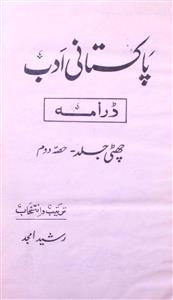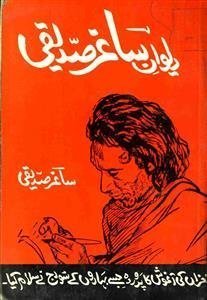 For any query/comment related to this ebook, please contact us at haidar.ali@rekhta.org
For any query/comment related to this ebook, please contact us at haidar.ali@rekhta.org
About The Book
مثنوی"گلزار نسیم" پنڈت دیا شنکر نسیم کی وہ مثنوی ہے جس نے انہیں حیات جاوید عطا کی اور یہی وہ مثنوی ہے جسے لکھنو کے دبستان شاعری کی پہلی طویل نظم کا شرف حاصل ہے،مثنوی "گلزار نسیم" پنڈت دیا شنکر نسیم کی لکھی ہوئی ایک عشقیہ مثنوی ہے جو "قصۂ گل بکاؤلی" کے نام سے مشہور ہے،گلزارِ نسیم میں تشبیہ اور استعار ات کا خوبصورت استعمال ہوا ہے،مثنوی کے پہلے شعر سے لے کر آخری شعر تک تواتر کے ساتھ یہ اندازِ بیان برقرار رہتا ہے اور اس طرح یہ گلزارِ نسیم لکھنوی تہذیب کی ترجمان بن جاتی ہے۔ "گلزار نسیم" میں نوابین اودھ کے عہد کی تہذیب نظر آتی ہے "گلزار نسیم" میں پرکاری کا جادو ہے، گلزار نسیم کی ایک خصوصیت اس کے پلا ٹ کی پیچیدگی ہے یہ صرف تاج الملوک اور بکاولی یا پھر صرف ایک پھول حاصل کرنے کی کہانی نہیں ہے بلکہ اس میں کئی کہانیاں گُتھ گئی ہیں۔ کتاب کے شروع میں مصنف کے مختصر حالت، مثنوی کے ماخد اور قصے کی مکمل تفصیل بھی دی گئی ہے۔
About The Author
Pandit Daya Shankar Naseem was born in 1811 in Lucknow. He belonged to a respected and educated family of Pandits, so he too had a keen interest in literature. After receiving the necessary education, he became a clerk in the royal army and probably held a post in the finance department. This was the time of Ghazi-ud-Din Haider and Naseer-ud-Din Haider Nawabin Awadh. This was a time when Lucknow was intoxicated with its comforts and luxuries. Naseem achieved the zenith of his literary tastes by coming under the wing of Khawaja Haider Ali Atash. Atash's status is prominent among the Ustads of Urdu who did a great job of reforming, refining and renewing the Urdu language and continued the work of spreading the language by involving the students in their work. Almost all of his disciples went on to become big names in one genre or the other of poetry. Pandit Daya Shankar also traditionally experimented with ghazals in the beginning.
But Ghazal could not contain the breadth of his imagination. The real essence of his abilities is revealed in Masnavi. Masnavi "Gulzar Naseem” gave him lasting fame and this is the Masnavi which has the honor of representing Lucknow school of poetry. The story presented in the Masnavi is not his original. This story was written by Ezzatullah Bengali in Persian. At the request of John Gill Christ, Nihal Chand Lahori translated this story into Urdu for Fort William College and then Naseem composed it in the form of Masnavi.
This story is more complicated than the stories of other romantic Masnavi in Urdu. Since the whole story is fictional, imaginary and magical, Naseem has wonderfully used the phrases, style of expression, literal discount and other literary techniques. It is said that this Masnavi of Naseem was very long in the beginning. When Atash was shown for poetic-proofing, he gave the first corrective advice that it should be shortened so that the readers could read the entire Masnavi in one sitting without any difficulty. Thus, Naseem shortened it so much that now there is no room to reduce a single word.
The Masnavi mentions the expeditions of Prince Taj-ul-Muluk in Parastan where he went in search of Gul Bakawli. Someone had told him that touching Gul Bakawli would bring back light in the eyes of her blind father. In this effort, he falls in love with Bakauli (fairy). Bakauli was a dream come true. Then he picked up a flower and changed his ring with it. After waking up, Bakauli disguises herself as a man and finds the crown prince. Bakaoli's mother plays a rival and separates the two. After many battles in the magical jungles, it happens that they meet each other in different ways and get married. The story takes another turn here. The Raja summons Bakauli inside the court and, as a punishment, imprisons half of his body in a mouth made of stone.
Meanwhile, Raja Indra's daughter Princess Chitrawat falls in love with Taj-ul-Muluk and realizes that she is in love with Bakauli and will not be inclined towards him. Circumstances are such that Bakauli is given a second life and meets the prince after a span of seventeen years. There is another story in this story about the love of the minister's sons Bahram and Hassan Ara.
The meter (in prose) that Naseem chose to manage this complex plot can only be read slowly. Naseem may have deliberately chosen it so that people would read the words slowly and enjoy its merits literally.
Gulzar Naseem reflects the special Lucknow atmosphere. In the Nawabi environment, women were superior to men, which is why many female characters dominate the story. The luxurious atmosphere of Lucknow had openly allowed that it is not a bad thing to describe nudity, so Naseem has not left any opportunity in which he has not described nude scenes for pleasure.
Pandit Daya Shankar Naseem lived only as long as 32 years. He passed away in 1843, and left for us this invaluable literary masterpiece.
 For any query/comment related to this ebook, please contact us at haidar.ali@rekhta.org
For any query/comment related to this ebook, please contact us at haidar.ali@rekhta.org
